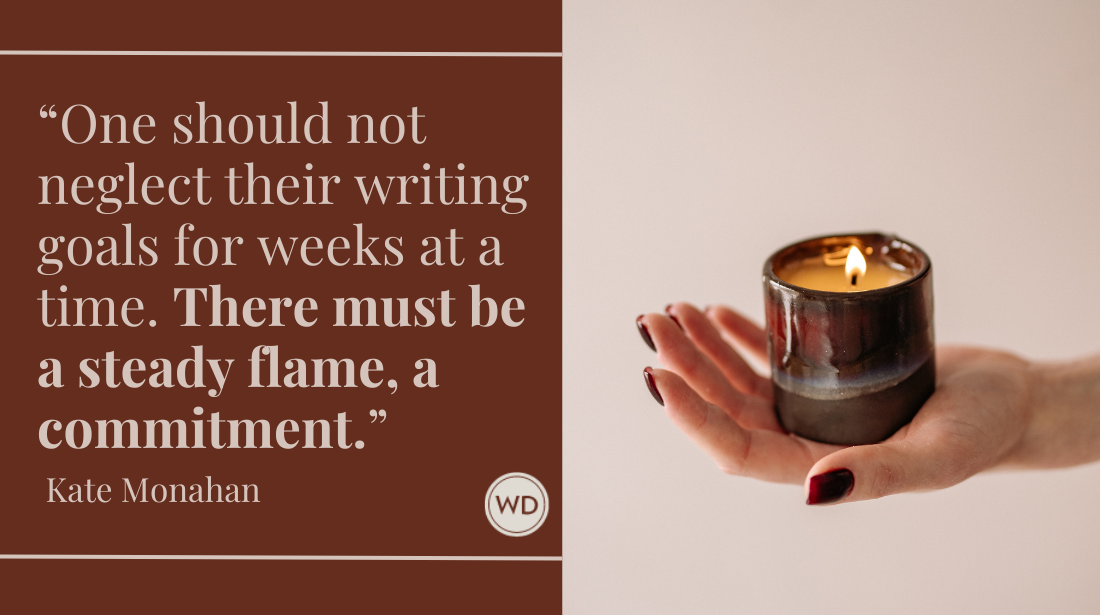The Story Chooses Us
Yesterday was a rough day. A rough writing day. It was one of those days when you write a sentence, erase that sentence, write another sentence, erase that sentence, and…
Yesterday was a rough day. A rough writing day. It was one of those days when you write a sentence, erase that sentence, write another sentence, erase that sentence, and on and on and on. I would begin a story, but I couldn’t move forward. I was stuck. It was as if my body, my mind, the whole of me was revolting against the particular story I was setting out to write.
A mentor once said to me: “Never write a story you don’t want to be writing.” This seems simple enough, but sometimes we think we do want to be writing a particular story. We’re sure it’s a great idea, a great concept. And so we pursue it. But the question is: should we pursue ideas or should we let them pursue us?
I think what I am trying to say is this: stories are only worth investing in, spending time on, and bleeding over if we can’t not write them. We need to be obsessed. You know that moment: something passes over you—an image, the singular voice of a yet unknown character—and it absolutely haunts you. You can’t get the voice out of your head, you can’t stop seeing the image, you can’t stop imagining. You lie awake at night, the story beginning to write itself… more characters appear, a setting appears… You’ve been stung by the Muse.
Now, I know as writers we can’t always wait for inspiration. Someone once said, “If you wait for inspiration, you’re not a writer, but a waiter.” We do have to write even when the Muse is shy, even when the juices aren’t flowing, even when we’re tired, sick, and feel like perhaps we just aren’t cut out for this. It’s tough to differentiate. Just because we sometimes have to write in the absence of inspiration doesn’t mean we should write a story just to write it. We must think hard about when to let a story go or when it’s the one that’s worth slashing our way through the forest for.
Raymond Carver once said, “The story chooses us, the image comes and then the emotional frame.You don’t have a choice about writing the story. There’s a filter at work which says this is or is not a story… I think a story ideally comes to the writer; the writer shouldn’t be casting the net out, searching for something to write about.”
At the beginning of this semester, we were assigned a paper for my literature seminar. The paper had to grow out of something we’d read in class. This paper could lean towards a more critical review or we could take the creative route. I chose to write something creative, to work on my fiction, but here’s the thing: The paper could only be 10 pages long. So there were these stipulations, these rules. And so for the last few weeks I tried to force my story into a box. I pained myself over trying to write a complete, whole story that ended perfectly on page 10. But I’d never done this before. My stories tend to be on the longer side. And so I searched and went crazy trying to find an idea for a shorter story. This was counterproductive. It caused balls of paper to pile next to me. It caused a blank screen to stare at me. I was forcing myself to write a story that my filter was working overtime to sift out.
Yesterday was the final straw. Yesterday, I looked at my files and I counted 5 half baked stories. 5 intellectually thought up stories. 5 so called “good ideas.”Some stories were a paragraph long and some were up to seven pages. It was ridiculous. They all bored me. Meanwhile, every time I took a break from the assignment, I chose to work on another story, a story that’s been in my heart for years.When I worked on this story, the vessel opened, the writing flowed, and the filter said THIS IS A STORY.
I just wasn’t paying attention.
As for the 10 page assignment, I still don’t know what will come of it (did I mention its due Wednesday? As in tomorrow?)But I do know this: the next time I get stuck, really stuck, I will at least ask myself: Did you choose this story or did it choose you?
“Writing is love, a mission, and a calling, and how and where and why you write are very crucial issues.”
-Lynn Sharon Schwartz








